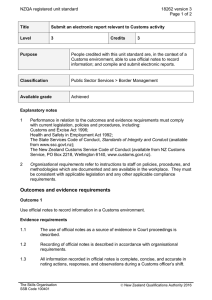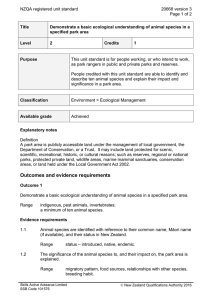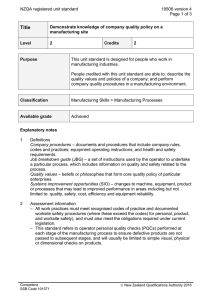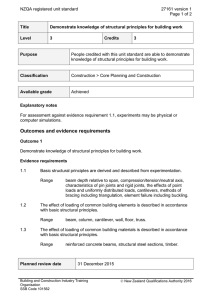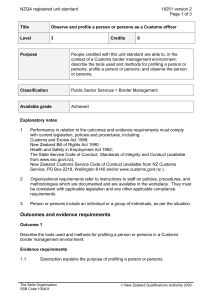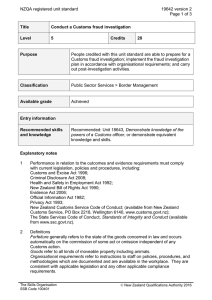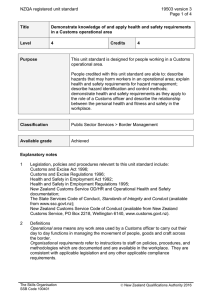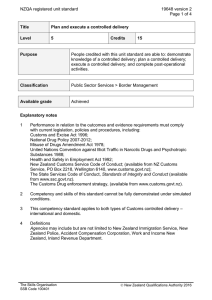NZQA registered unit standard 18250 version 3 Page 1 of 2
advertisement
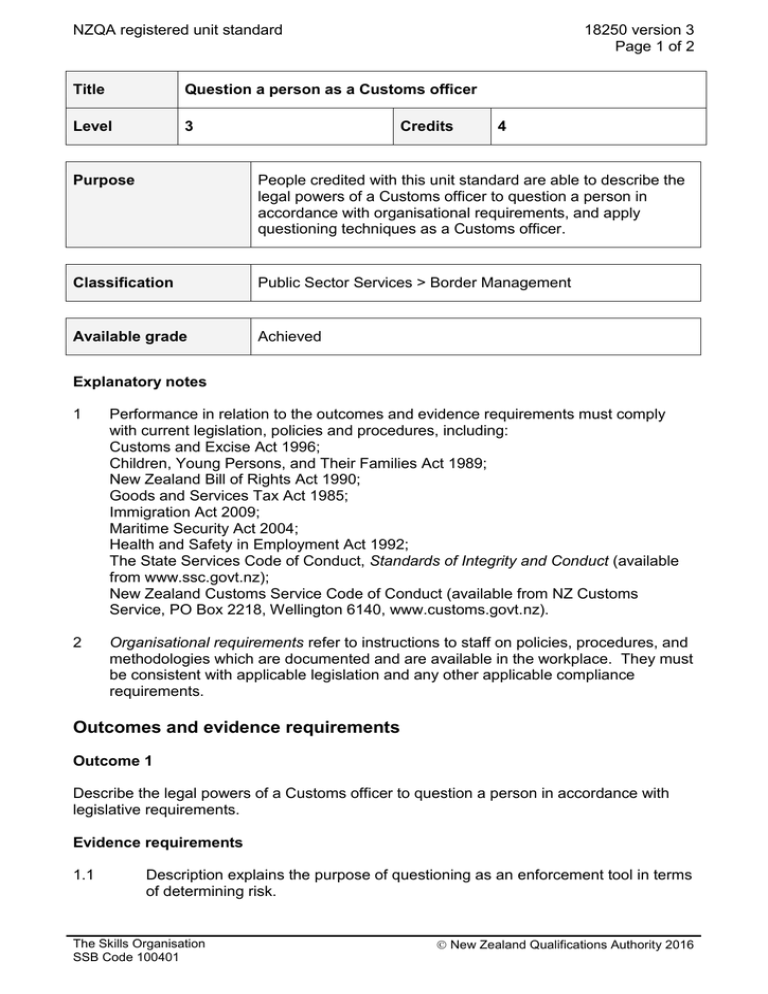
NZQA registered unit standard 18250 version 3 Page 1 of 2 Title Question a person as a Customs officer Level 3 Credits 4 Purpose People credited with this unit standard are able to describe the legal powers of a Customs officer to question a person in accordance with organisational requirements, and apply questioning techniques as a Customs officer. Classification Public Sector Services > Border Management Available grade Achieved Explanatory notes 1 Performance in relation to the outcomes and evidence requirements must comply with current legislation, policies and procedures, including: Customs and Excise Act 1996; Children, Young Persons, and Their Families Act 1989; New Zealand Bill of Rights Act 1990; Goods and Services Tax Act 1985; Immigration Act 2009; Maritime Security Act 2004; Health and Safety in Employment Act 1992; The State Services Code of Conduct, Standards of Integrity and Conduct (available from www.ssc.govt.nz); New Zealand Customs Service Code of Conduct (available from NZ Customs Service, PO Box 2218, Wellington 6140, www.customs.govt.nz). 2 Organisational requirements refer to instructions to staff on policies, procedures, and methodologies which are documented and are available in the workplace. They must be consistent with applicable legislation and any other applicable compliance requirements. Outcomes and evidence requirements Outcome 1 Describe the legal powers of a Customs officer to question a person in accordance with legislative requirements. Evidence requirements 1.1 Description explains the purpose of questioning as an enforcement tool in terms of determining risk. The Skills Organisation SSB Code 100401 New Zealand Qualifications Authority 2016 NZQA registered unit standard 18250 version 3 Page 2 of 2 1.2 Description explains the scope of an officer’s ability to question. 1.3 Description includes the consequences of a person not answering, or incorrectly answering questions. Outcome 2 Apply questioning techniques as a Customs officer. Evidence requirements 2.1 A range of questioning techniques are demonstrated to elicit information relevant to suit the situation and in accordance with organisational requirements. Range questioning techniques may include but are not limited to – open ended questions, reflective, overlapping. Status and review information Registration date 16 July 2010 Date version published 16 July 2010 Planned review date 1 February 2015 Accreditation and Moderation Action Plan (AMAP) reference 0121 This AMAP can be accessed at http://www.nzqa.govt.nz/framework/search/index.do. Please note Providers must be granted consent to assess against standards (accredited) by NZQA, or an inter-institutional body with delegated authority for quality assurance, before they can report credits from assessment against unit standards or deliver courses of study leading to that assessment. Industry Training Organisations must be granted consent to assess against standards by NZQA before they can register credits from assessment against unit standards. Providers and Industry Training Organisations, which have been granted consent and which are assessing against unit standards must engage with the moderation system that applies to those standards. Consent requirements and an outline of the moderation system that applies to this standard are outlined in the Accreditation and Moderation Action Plan (AMAP). The AMAP also includes useful information about special requirements for organisations wishing to develop education and training programmes, such as minimum qualifications for tutors and assessors, and special resource requirements. Comments on this unit standard Please contact The Skills Organisation info@skills.org.nz if you wish to suggest changes to the content of this unit standard. The Skills Organisation SSB Code 100401 New Zealand Qualifications Authority 2016
